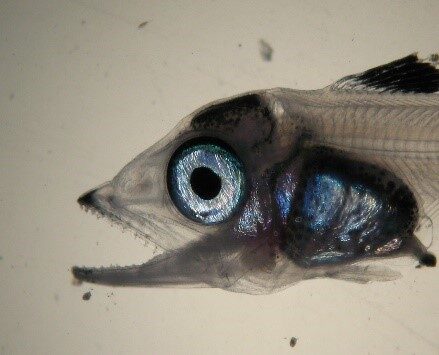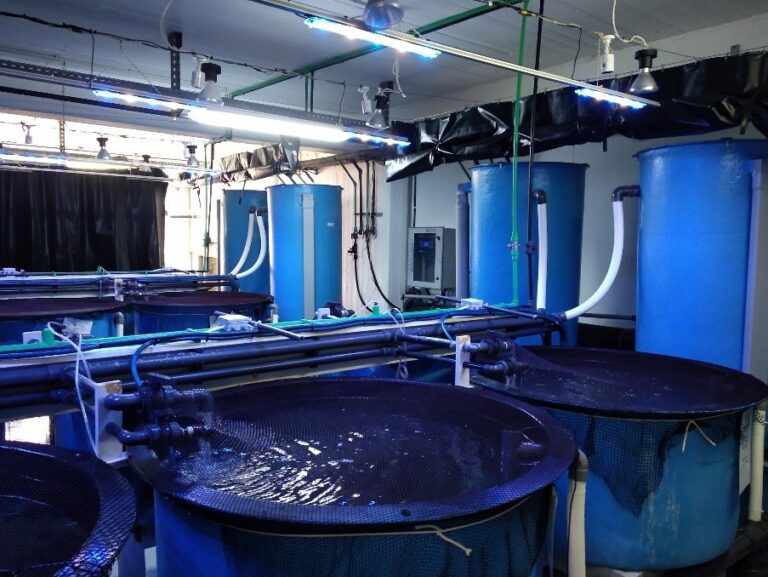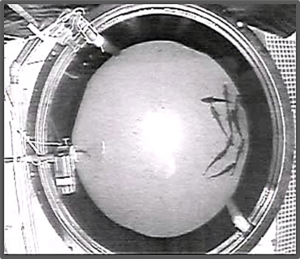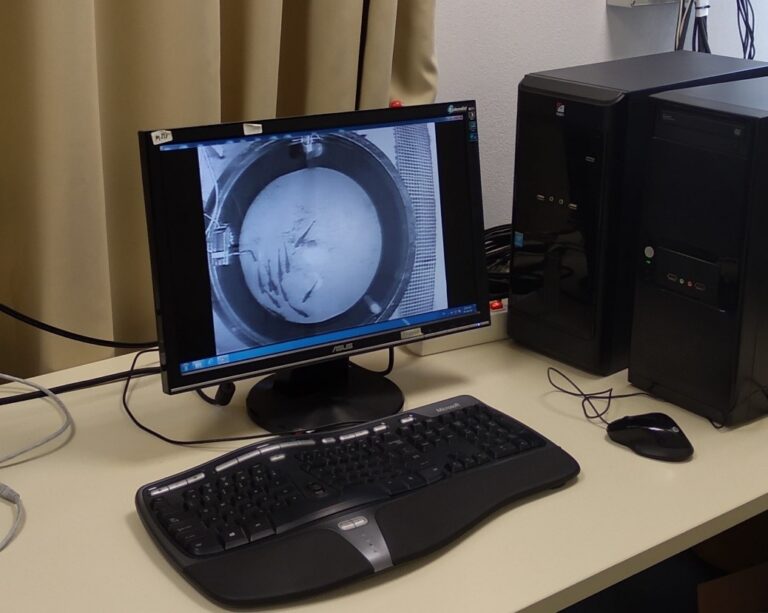Contact person
Name: Ioannis Papadakis
Position: Assistant Researcher
Telephone: +302810337876
Email: papad@hcmr.gr
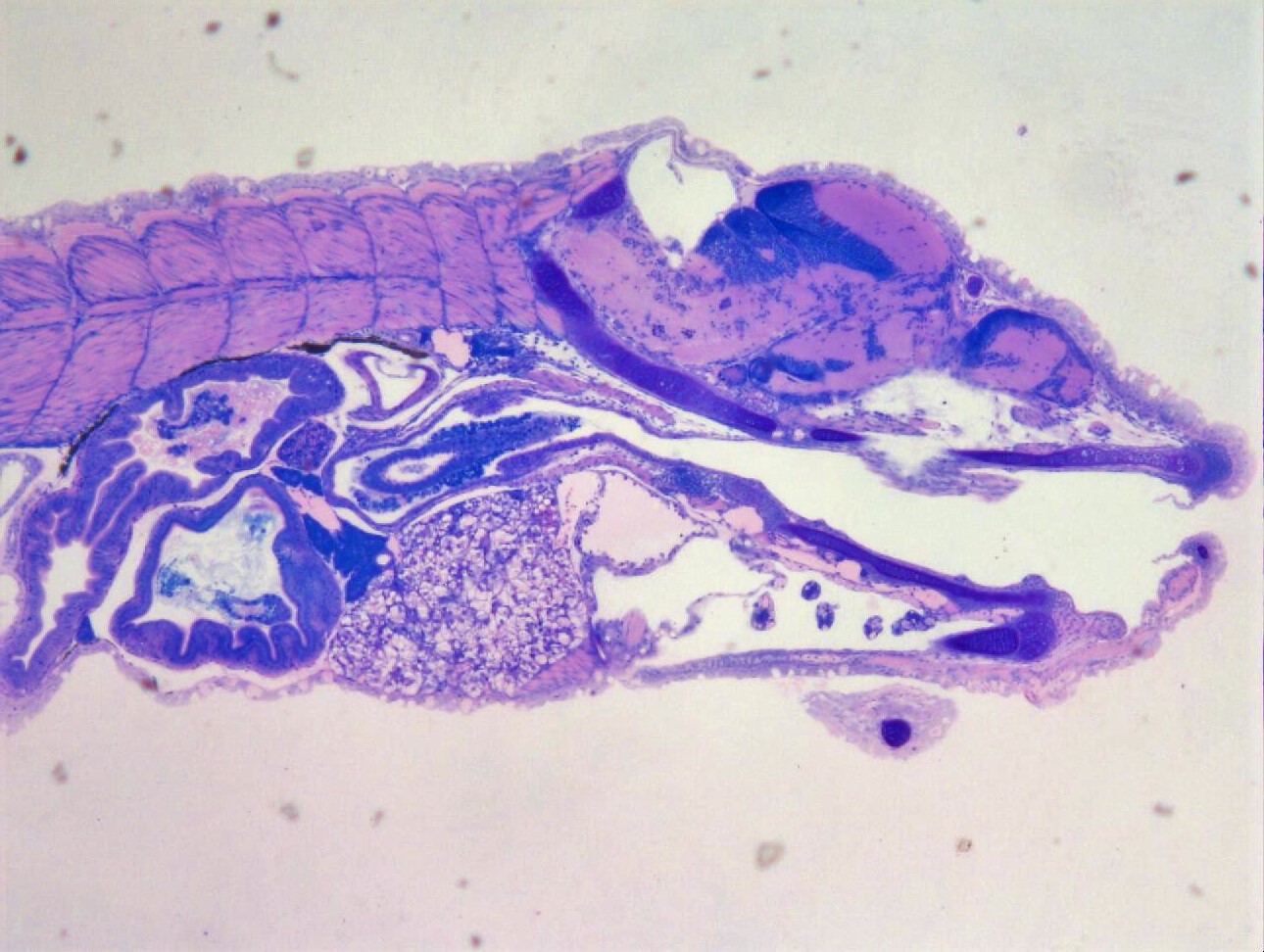
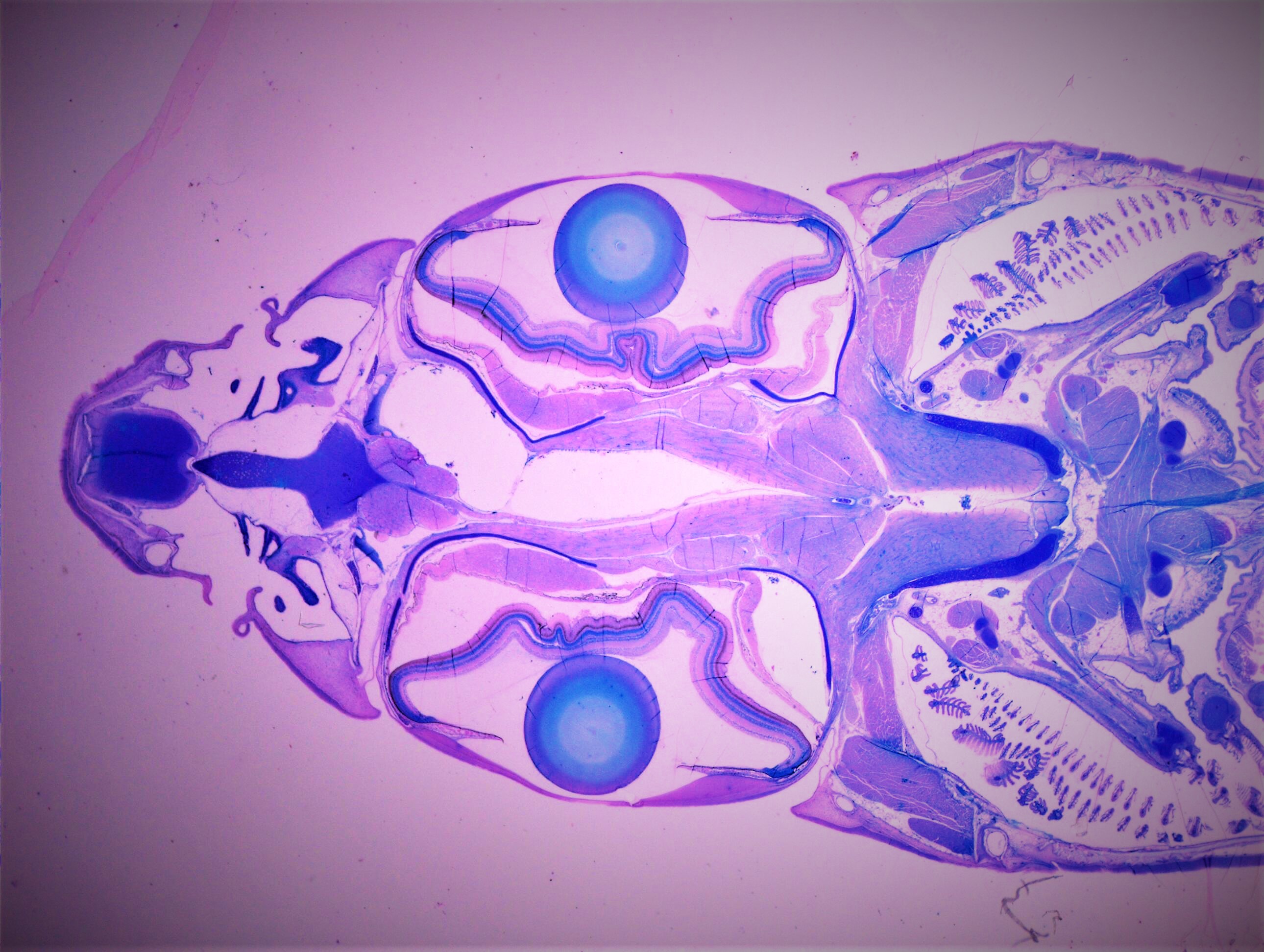
Evaluation and optimization of larval rearing protocols
The general philosophy of our approach is to align the anatomical and functional capabilities from the larvae digestive and vision systems, with the rearing protocol. The ultimate objective of this service is to create a low cost-effective rearing protocol that will allow optimal foraging of the larvae, minimize the rearing stress, maximize the feeding protocol acceptance from the larvae, and finally, the achievement of the optimum production indices for the hatcheries. The evaluation of larval rearing protocols based on histological analysis of basic systems of larvae (digestive and vision system) that are related to fish feeding behaviour.
Our services offer information concerning:
- Description of the development of digestive and vision systems with the rearing protocols that have been employed.
- Assessment of visual ability (distance and light intensity) in different developmental stages and correlation with the size and density of the feeding items used in the tank.
- Variation of lipid deposition in the liver in correlation with the feeding protocol, pointing to periods of nutritional deficiencies and inappropriate feeding.
- Correlation between larvae feeding preferences and the items provided by the feeding protocol, providing information for the optimization of feeding strategy.
- Identification of critical phases (malnutrition periods) during the rearing procedure, in order to improve the rearing conditions (e.g., feeding protocol and light conditions) at these periods.
Analysis of fish behaviour under culture conditions
In recent years, intelligent control methods, mainly for feeding management, have been developed in the sector of the aquaculture industry. All these methods based on the close collaboration between engineers, farmers, and fish behaviourists, in order to find the most suitable feeding methodology for each farmed fish. We study different behavioural indices such as learning ability, feeding behaviour, habitat preferences, swimming behaviour, ethology, and social behaviour of rearing fish, in relation with the rearing biotic and abiotic conditions such as temperature, optical conditions, light intensity, light spectrum, oxygen level and stocking density.
Our services offer information concerning:
- Optimum harmonization between the rearing conditions and the specific behavioural characteristics of reared fish, for the improvement of welfare conditions.
- Creation of knowledge for the improvement of rearing management for reared fish focused on the increase of production indices for the aquaculture industry.
Customers
| International and national aquaculture companies. |
| Facilities |
|
|
|
|
| Research Directions |
|
|
|
|
